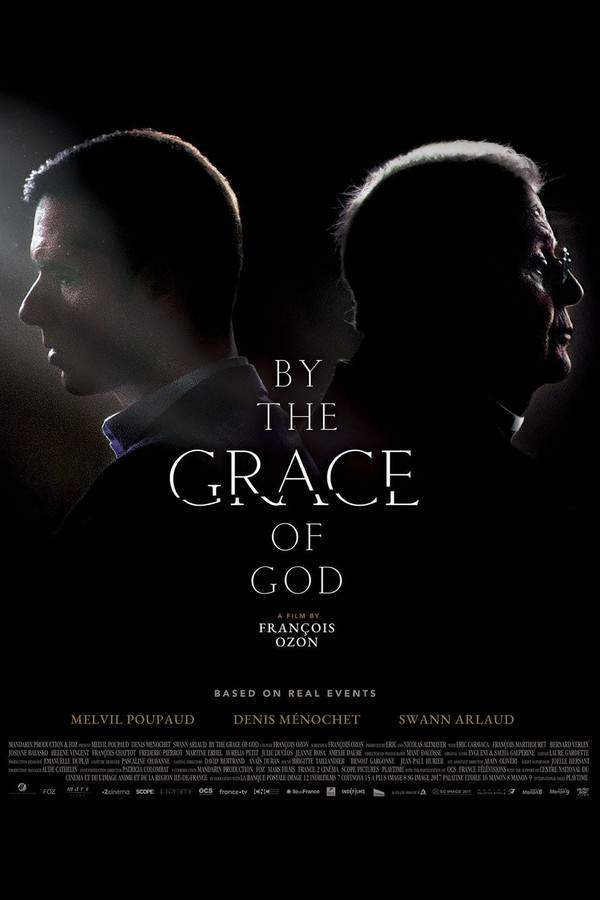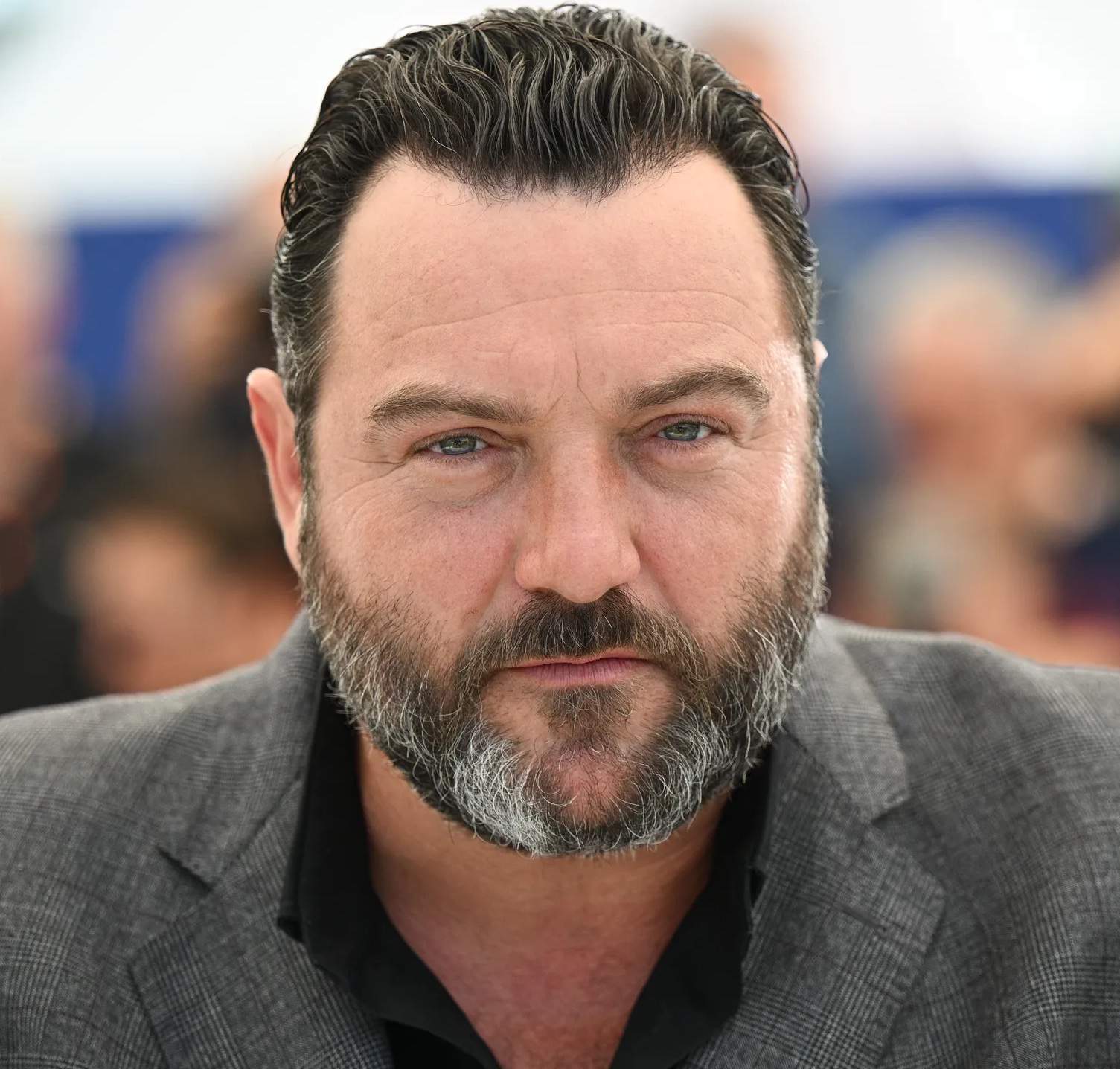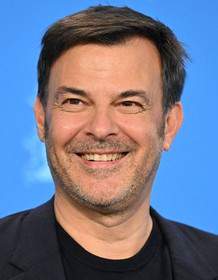By the Grace of God 2019

Three men, deeply affected by childhood abuse inflicted by a priest, come together to expose the truth and break the silence that has shielded their abuser. The film explores the profound and lasting impact of this trauma on their lives and the lives of their families. Through their individual stories, the film reveals the devastating consequences of abuse and reflects a real-life scandal unfolding in France, highlighting the importance of confronting painful truths.
Does By the Grace of God have end credit scenes?
No!
By the Grace of God does not have end credit scenes. You can leave when the credits roll.
Meet the Full Cast and Actors of By the Grace of God
Explore the complete cast of By the Grace of God, including both lead and supporting actors. Learn who plays each character, discover their past roles and achievements, and find out what makes this ensemble cast stand out in the world of film and television.

Melvil Poupaud
Alexandre Guérin

Josiane Balasko
Irène

Swann Arlaud
Emmanuel Thomassin

Hélène Vincent
Odile Debord

Eric Caravaca

Amélie Daure
Jennifer

Bernard Verley
Le père Bernard Preynat

Denis Menochet

François Chattot
Pierre Debord

François Marthouret
Le cardinal Barbarin

Julie Duclos
Aline Debord

Martine Erhel
Régine Maire

Olivier Faliez
External Links and Streaming Options
Discover where to watch By the Grace of God online, including streaming platforms, rental options, and official sources. Compare reviews, ratings, and in-depth movie information across sites like IMDb, TMDb, Wikipedia or Rotten Tomatoes.
Ratings and Reviews for By the Grace of God
See how By the Grace of God is rated across major platforms like IMDb, Metacritic, and TMDb. Compare audience scores and critic reviews to understand where By the Grace of God stands among top-rated movies in its genre.

The Movie Echo Score
By the Grace of God is a thoughtfully restrained drama that earns respect for its clear handling of sensitive material despite occasional narrative drag. Critics applaud the director’s controlled approach and the film’s moral focus, while noting an over-reliance on voiceover and some questions about pacing. Users highlight strong performances but remark on a clinical tone that can feel detached. Overall, the film balances integrity with measured pacing, yielding a moderately compelling experience.
The Movie Echo Score Breakdown for By the Grace of God

Art & Craft
In terms of art and craft, the film displays competent cinematography and editing under a restrained directorial style. Reviewers point to precise camera placements and unvarnished framing that suit the serious subject, although some note the conventional visuals lack the director’s customary flair and feel overly formal. Production design and sound editing are unobtrusive but effective. The overall impression is of solid technical execution tempered by an understated aesthetic.

Character & Emotion
When it comes to character and emotion, the film benefits from earnest performances that convey the value of each survivor. Critics note respectful portrayals that honor the real-life subjects, and users praise a heart-breaking turn that underscores empathy. However, some find the emotional core somewhat distant, with scenes feeling more like re-enactments than fully immersive drama. The net effect is a credible ensemble that occasionally limits deeper emotional connection.

Story & Flow
In terms of story and flow, the relay structure provides clear narrative strands for each protagonist, though the epistolary device can disrupt coherence. Several reviewers observe that the plot slows with ancillary scenes that add color but hinder momentum, while others find the sober pacing steadily builds engagement. The methodical progression reflects the real-time nature of the case but can feel overlong. Overall, the storyline achieves thematic clarity at the expense of tighter pacing.

Sensory Experience
When examining the sensory experience, the film’s subdued soundtrack and precise sound design support its clinical tone. Critics appreciate the measured musical cues that underscore key moments, and users note the visual consistency matches the narrative seriousness. The restrained visual style foregoes exuberant color grading, favoring an unadorned palette. This cohesive approach enhances focus on subject matter, though it may feel too austere for those seeking more atmospheric immersion.

Rewatch Factor
Regarding rewatch factor, the film’s heavy subject and restrained style suggest limited replay appeal. While reviewers commend its importance and the integrity of its portrayal, the measured pacing and documentary-like form may deter repeat viewings. Users mention the lack of emotional warmth and subdued atmosphere can lessen enjoyment after the first experience. As a result, the film leaves a lasting impression conceptually but is unlikely to inspire frequent revisits.

75
Metascore
7.3
User Score


96%
TOMATOMETER

73%
User Score

8.7 /10
IMDb Rating

81
%
User Score
Take the Ultimate By the Grace of God Movie Quiz
Challenge your knowledge of By the Grace of God with this fun and interactive movie quiz. Test yourself on key plot points, iconic characters, hidden details, and memorable moments to see how well you really know the film.
By the Grace of God Quiz: Test your knowledge on the complex themes and events in 'By the Grace of God'.
What is Alexandre Guérin's profession?
teacher
banking executive
doctor
lawyer
Show hint
Full Plot Summary and Ending Explained for By the Grace of God
Read the complete plot summary of By the Grace of God, including all major events, twists, and the full ending explained in detail. Explore key characters, themes, hidden meanings, and everything you need to understand the story from beginning to end.
Alexandre Guérin, a prosperous banking executive residing in the beautiful Lyon region, is depicted as a devoted husband and father of five, deeply entrenched in his Catholic faith, which is shared by his loving family. However, following a conversation with a former scouting companion, he is suddenly thrust into a whirlwind of distressing memories that force him to confront the horrific sexual abuse he experienced at the hands of a pedophile priest, Father Bernard Preynat. Although the statute of limitations has rendered the events officially obsolete, anguish compels Alexandre to embark on a quest for truth and justice.
In his pursuit, Alexandre reaches out to Régine Maire, a psychologist associated with the archbishop, and successfully arranges a meeting with Cardinal Philippe Barbarin, the Archbishop of Lyon. What he uncovers is deeply troubling; despite multiple warnings from concerned parents, the Church has persistently chosen to conceal the misconduct. A striking encounter is mediated by Régine Maire between Alexandre and Father Preynat, which culminates in an almost surreal joint prayer, illustrating the complexity of their shared ordeal. Despite Alexandre’s relentless inquiries and numerous emails, ecclesiastical authorities repeatedly defer taking action. The disturbing realization dawns on Guérin when he witnesses Father Preynat continuing his ministry, still interacting with young individuals during a church mass.
Frustrated in his search for other victims willing to come forward, Guérin resolves to file a complaint on his own. During this process, he meets Captain Courteau, who is actively seeking other victims whose claims have not yet exceeded the legal timeframe. This connection leads him to François, an atheist deeply affected by his own experiences. Together, they form the association “La Parole Libérée,” which gains traction as other victims, including surgeon Gilles and the emotionally scarred Emmanuel, join their cause. United by shared suffering, they collectively embark on a legal battle against their abuser.
As external pressures mount, and with increasing encouragement from Régine Maire, Cardinal Philippe Barbarin reluctantly holds a press conference. However, his tactless remark that the incidents are “thank God prescribed” sends shockwaves through the audience, exemplifying the distressing complexities surrounding their plight. The association ultimately succeeds in indicting Father Preynat, who openly admits to his actions, providing a glimmer of hope for the plaintiffs wishing to challenge the power of the Catholic hierarchy. Yet, this journey is not without immense personal toll—each individual must grapple not only with their harrowing pasts but also with their familial relationships and personal beliefs. As the tumultuous road unfolds, Alexandre wrestles with the foundations of his Christian faith, leaving him to ponder the profound implications of his experiences.
Uncover the Details: Timeline, Characters, Themes, and Beyond!

Coming soon on iOS and Android
The Plot Explained Mobile App
From blockbusters to hidden gems — dive into movie stories anytime, anywhere. Save your favorites, discover plots faster, and never miss a twist again.
Sign up to be the first to know when we launch. Your email stays private — always.
Watch Trailers, Clips & Behind-the-Scenes for By the Grace of God
Watch official trailers, exclusive clips, cast interviews, and behind-the-scenes footage from By the Grace of God. Dive deeper into the making of the film, its standout moments, and key production insights.
By the Grace of God Other Names and Titles
Explore the various alternative titles, translations, and other names used for By the Grace of God across different regions and languages. Understand how the film is marketed and recognized worldwide.
Quick Links: Summary, Cast, Ratings, More

What's After the Movie?
Not sure whether to stay after the credits? Find out!
Explore Our Movie Platform
New Movie Releases (2026)
Famous Movie Actors
Top Film Production Studios
Movie Plot Summaries & Endings
Major Movie Awards & Winners
Best Concert Films & Music Documentaries
Movie Collections and Curated Lists
© 2026 What's After the Movie. All rights reserved.















